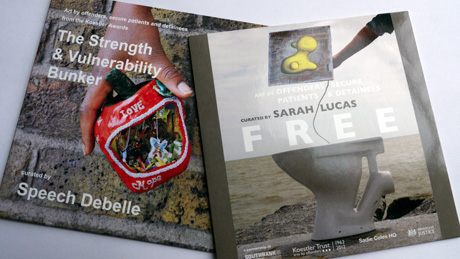Writing a production brief is an essential way to communicate the creative vision and any set requirements to other people who will be working on the film or video project.
Preparing for video production
As a filmmaker, I’m always getting asked for tips and ideas on how to make good short films and engaging video content. One of the keys to that can be for the client to consider writing a production brief.
I’ve written this brief guide to writing a production brief. It includes what to consider to include for your brief to help anyone who is looking to commission video content or short-form films.
Explain the details
Video content and short films are an ideal way to help explain complex projects, stories or processes in the most accessible way. Modern technology has democratised the film and video industry and it’s now becoming more usual for one dedicated filmmaker (who has the necessary wide range of skills) to manage all the technical elements involved in the whole creative process. This ‘one-stop’ process can make the availability of video content and short-form films more easily accessible and affordable for a wider range of sectors, businesses and individuals.
Deciding on the length of a film or a video will depend upon many factors and will include: the budget available, how the film or video will be used, who is the target audience along with the type featured content and possible story. Your filmmaker can advise you on appropriate durations.
A good starting point can be to identify films and video styles that you like.
Film-making can be broadly broken down into three main stages
1. Pre-production and writing a brief:
Developing ideas, identifying the story and locations and planning for filming. If your film uses actors or models, you may need to work with your filmmaker to develop a script, a storyboard and to organise a casting session.
2. Production:
Live-action filming and creating any complex graphics/animations created/music compositions if required
3. Post-production:
Creating the narrative with editing, applying text and effects, sound mixing, colour grading, sign-off and delivery
The pre-production brief
Questions to consider at the start of the process.
What is the purpose of making your film?
This could include: to improve funding; promote engagement for a specific project; to sell a product or service or to raise awareness of a project or cause.
How might the film or videos be used?
Consider how you are planning to use the film and the technical specifications for suitable delivery:
Will you be using the film as part of a social media marketing campaign or as part of a wider marketing strategy?
Will the film be shown at meetings and presentations using a computer or projector?
Might you send the film out as part of a promotion on a video card or pen drive?
Will you be delivering the film to any specific media channels or online platforms?
Will the film be uploaded to your website?
Have you considered if the film could be suitable for a film festival?
Answering these questions will ensure your film will be suitable for the uses for which you commission it.
Writing the pre-production brief
Whether you are making a short product video, an observational documentary-style short film to explain a project or a short promotional film, writing a brief will help to focus your ideas and requirements. If you are inviting a filmmaker to make the film for you, it will help them to tailor their ideas to suit your required brief. It will also help you to bring all the relevant information together so that the final film version becomes more easily defined.
Any specific filming dates and final end durations will be a helpful guide for your filmmaker in planning how long the final content will take to edit and post-produce and therefore will assist in establishing how much the film is going to cost to make.
Consider structuring your brief by breaking the project down into a list of key elements. For example:
Summary:
If your brief is more than a few pages long, consider writing a brief overview at the start to summarise the whole project.
Background:
Is there any background information on the project or film that could help your filmmaker better understand the project and your requirements? You might reference some other projects to help communicate your vision.
The Brief:
Describe the film’s content as you envisage it:
What is the target audience? What are the key messages? Do you have any specific filming requirements? Are locations known and/or fixed? Will you be using a location site, require a suitable hired studio or will you be filming at your place of work?
Outputs:
How is the content to be delivered? What are the duration and technical spec? Refer to any specific standards for guidance. Do you also require a copy of the complete set of raw footage delivered at the end?
Timeline:
List any key briefing, filming or delivery dates. Is there a schedule for the films completion or specific filming dates? Target key activities and events that you require filming.
Budget:
Is there a fixed budget or are you asking for quotes? List what is your budget or budget range and what it does/or does not include. For example, does it include studio hire, extra crew, music licensing, and crew food and travel expenses or will these be added as extras as required?
Pitch:
You might ask a few people to present a pitch for the creation of your film. A pitch is a form of words used when trying to persuade someone to buy or accept something. Ideally, you should detail what you are looking for in a pitch to be submitted i.e. a description of the proposed work; a production schedule; a summary of relevant experience and technical knowledge required; examples of similar work and a breakdown of costs. It could also be helpful to add your evaluation criteria if you are asking more than one person to pitch for the one job.
Useful Information:
The more information you can provide, the better sense your filmmaker will gain from the brief therefore delivering a more targeted film. If you have specific thoughts about what you don’t want then you could write them down, as that would help the filmmaker to propose alternative ideas.
To Finish:
Spending time thinking about your film and developing your ideas into an outline brief ahead of filming will make sure that you end up with the film that will meet your requirements. It will also help your filmmaker deliver the project to your brief and budget as well as being technically and creatively correct for its future uses.
Writing a video production brief can be as simple or as detailed as required. It might be realised as a phone conversation, discussed in a group meeting or sent out a document. Its aim is to help to communicate a shared understanding so that your filmmaker can deliver an engaging film that tells the story and helps promote engagement and future understanding.
If you have any questions or would like advice on anything regarding your video production or post-production please do drop me a message. Check out my Vimeo channel for my latest works. If you have found writing a video production brief helpful you may also enjoy these related articles. For more advice and tips check out my video production blog.




